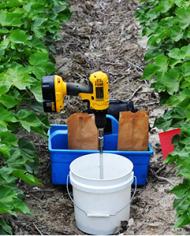Researchers have developed a new, easier way to find the answer to the question, "How much carbon is stored in soil?"
Search Articles
-
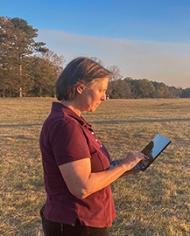
ARS researchers have developed a unique mobile system that assesses and maps out soil carbon to a depth of 30 centimeters (the plow layer) – all in real time.
Mar 01, 2022 -
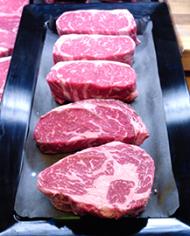
Scientists developed a method to analyze PFAS in foods including chicken, pork, beef, catfish, and eggs.
May 27, 2024 -
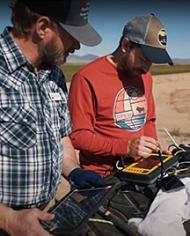
Researchers worked with the Quapaw tribe to create high-resolution digital maps of soil properties for their tribal lands.
Apr 26, 2024 -
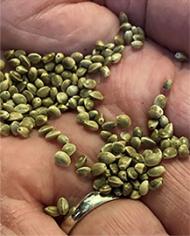
Hempseed cake was mixed into cattle feed for approximately 16 weeks and then meat products from the cattle were tested for CBD and THC levels.
Mar 27, 2024 -
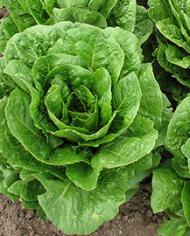
ARS researchers developed an antibody against the most lethal variant of the Shiga toxin, called Stx2.
Mar 27, 2024 -
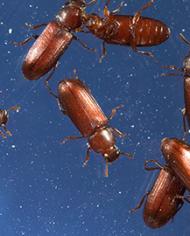
ARS scientists used artificial intelligence to develop image-based identification for five common stored grain insect species.
Feb 12, 2024 -
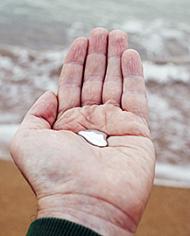
Researchers developed a portable, dual detection biosensor that enables on-site testing of samples for mercury and displays the results on a smart phone.
Apr 26, 2023 -
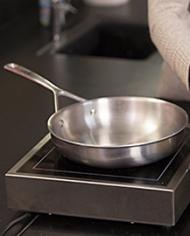
ARS scientists are studying the potential health risks of perfluorooctanoic acid (PFOA).
Apr 04, 2023 -
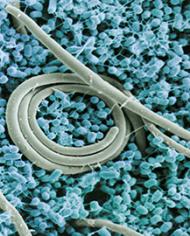
ARS scientists in collaboration with researchers at the University of Georgia, developed a series of algorithms capable of effectively predicting the prevalence of Salmonella.
Mar 03, 2022 -
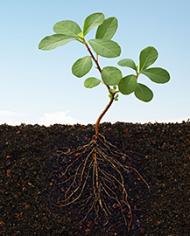
A new protocol addresses sources of variability and uncertainty in measuring microbial community composition and its connection with agricultural management and changing climate.
Feb 10, 2022 -
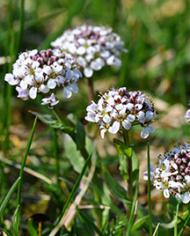
Researchers determined that winter camelina and pennycress are effective in reducing excess nitrogen and preventing its escape from farmland.
Mar 31, 2021 -
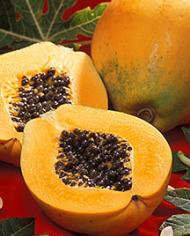
ARS researchers found that two disinfectants could reduce, Salmonella on papayas.
Mar 23, 2021 -
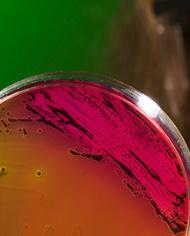
Certain plant-based compounds and probiotic cultures are effective for keeping poultry and eggs free from harmful bacteria.
Mar 23, 2021 -
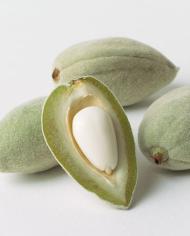
Scientists developed a effective, energy-saving technology to help keep microbes and mycotoxins off almonds.
Jul 27, 2020 -
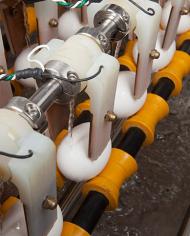
ARS scientists at the Food Safety and Intervention Technologies Laboratory have hatched a way to produce safer eggs without jeopardizing quality.
Jul 27, 2020 -
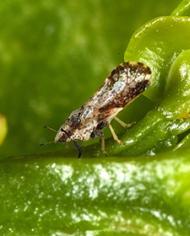
A team of ARS and Boyce Thompson Institute researchers in Ithaca, NY, may have found a weak link in the citrus-greening disease cycle.
May 09, 2019 -

ARS scientists are using a device known as "SHIME," to study the influence of dietary changes on the activity of these microbes in a simulated environment outside the human digestive tract.
Apr 03, 2018 -
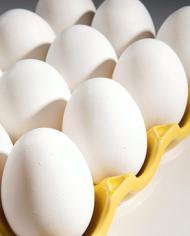
ARS scientists designed and developed portable and stationary LED-light grading systems and developed a computerized software system.
Apr 26, 2017 -
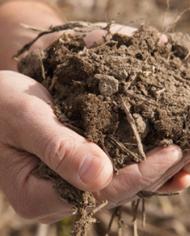
Farmers can better determine how much or how little nitrogen to apply for optimal crop yields by using "Soil-Test Biological Activity" approach.
May 28, 2019 -
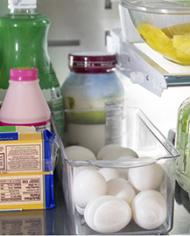
ARS researchers compared egg storage methods to verify the benefits of egg washing and refrigerated storage.
May 23, 2019 -
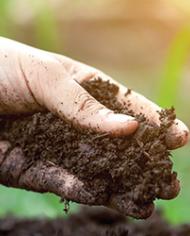
Researchers developed state-of-the-art sensors that estimate soil water levels using readings from electromagnetic pulses.
May 16, 2019 -
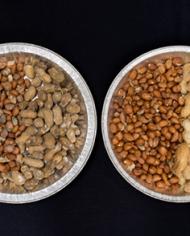
The researchers found that raising the temperature in stored peanuts solved the mold problem without affecting peanut quality.
May 15, 2019 -

ARS scientists have shown that anaerobic soil disinfestation is a promising alternative to methyl bromide fumigation.
Apr 19, 2018 -
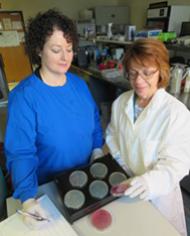
ARS scientists have worked with public and private partners to develop animal vaccines, antibody therapies, and strategies for enhancing the immune systems of farm animals.
Apr 17, 2018 -
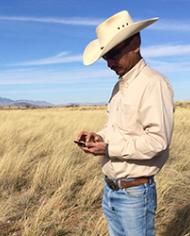
ARS has developed the LandPKS app to help farmers better monitor their soil and crop conditions to make better decisions about irrigating, weeding, and fertilizing crops.
Mar 29, 2018 -
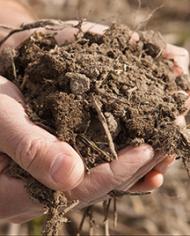
A new garbage-processing technology reduces the municipal solid waste disposal in landfills and generates a co-product that can be used to reclaim damaged soils.
May 09, 2017 -
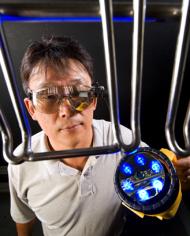
ARS collaborated with the FDA to develop a low-cost, portable detection system that can differentiate between active and non-active toxins in food samples
Mar 03, 2017



